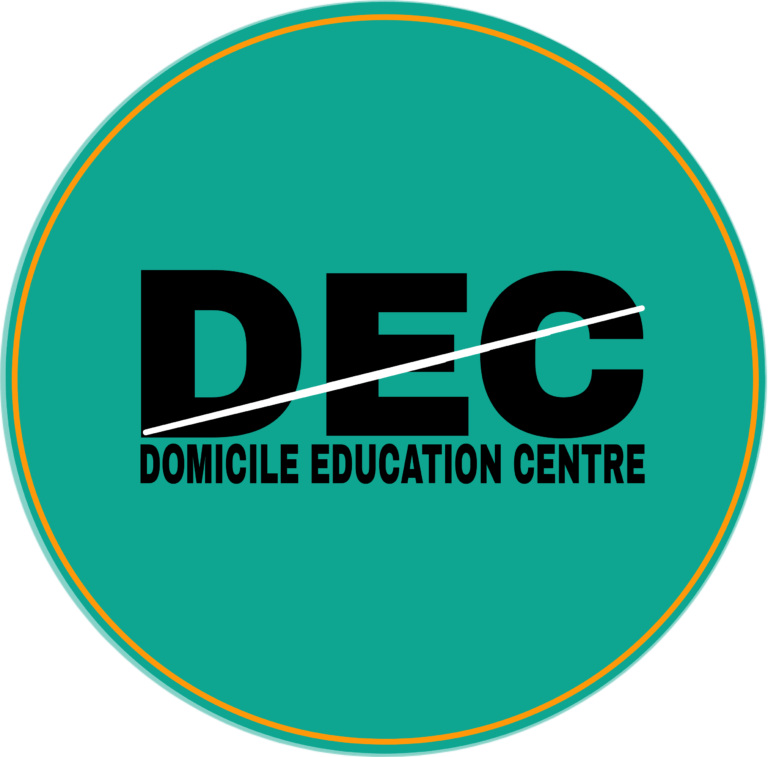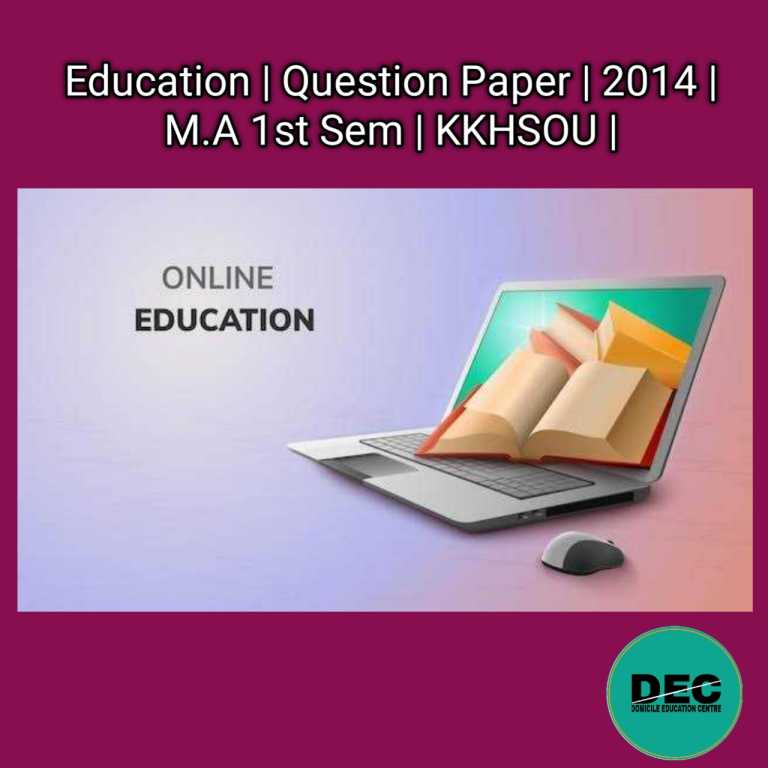Table of Contents
ToggleEducation | Question Paper | 2014 | M.A 1st Sem | KKHSOU |
Question Paper 2014
Here in this title you can collect to know about :
- 2014 Education Question Paper M.A 1st Sem KKHSOU
2014 Education Question Paper M.A 1st Sem KKHSOU
KRISHNA KANTA HANDIQUE STATE OPEN UNIVERSITY
M.A 1st Sem, Examination, 2014
Paper-01
Philosophical Foundation of Education
Time : 3Hrs Full Marks : 80
1. Answer any five questions from the following (each within 50 words). 2 x 5 =10
(a) Mention four characteristics of philosophy.
(b) Explain the broad meaning of education.
(c) What do you mean by Vedic and Non-Vedic school of Indian philosophy ?
(d) What is the Gandhiji’s concept of ‘Nai-Talim’ ?
(e) Enumerate the concept of ‘productive and produced’ in Sankhya philosophy.
(f) What are the three aims of education according to Jainism.
(g) Discuss about Vivekananda’s ideas of women education.
2. Answer any three questions (each within 100 words). 4 x 3 =12
(a) Show your acquaintance with Nyaya philosophy.
(b) Point out the main principles of pragmatism in education.
(c) What are the defects of Gandhiji’s Basic Education Scheme ? Discuss.
(d) What are the aims of education according to existentialism ?
(e) ‘Sense realism is the basis of educational principles’ – Discuss this statement.
3. Answer any three questions (each within 200 words). 6 x 3 =18
(a) ‘Family is the first school of the child’ –Discuss.
(b) Discuss about the socio-cultural impact of Islamic knowledge on Indian Education.
(c) ‘Idealism has more to contribute to the aims and objectives of education than to its methods’ – Discuss this statement clearly bringing out the aims of education according to idealism.
(d) Briefly discuss about democratic philosophy of education.
(e) Write a short note on Sri Aurobindo’s philosophy on education.
4. Answer any four questions (limited your answer within 400 words each). 10 x 4 =40
(a) ‘Philosophy establishes the Fundamental theories and education examines their practicability and their reality’ – Elucidate this statement.
(b) What is Vedanta philosophy ? Discuss about the salient features of the Vedanta philosophy.
(c) Elucidate the concept of four noble truths of Buddhist philosophy. Discuss about the aims of education according to this philosophy.
(d) What is the philosophy of Marxism ? Discuss about the impacts of Marxism in theory practice of education.
(e) What are the basic principles of naturalism ? Point out its important contributions in the field of modern education.
(f) Briefly discuss the educational philosophy of Rabindranath Tagore and indicate hoe it was materialized in Shantiniketan.
xxxxxxxx
KRISHNA KANTA HANDIQUE STATE OPEN UNIVERSITY
M.A 1st Sem, Examination, 2014
Paper-02
Psychological Foundation of Education
Time : 3Hrs Full Marks : 80
1. Answer any five questions from the following (each within 50 words) : 2 x 5 =10
(a) What is educational psychology is called a science of education ?
(b) What are the steps involved in Thorndike’s trial and error theory of learning ?
(c) What are the instruments of thinking ?
(d) What are the steps of concreate development ?
(e) Write three dimensions of creative performance measurement.
(f) Analyse Allport’s definition on personality.
(g) What do you mean by Basic Personality Inventory ?
2. Answer any three questions from the following (each within 100 words) : 4 x 3 =12
(a) What are the merits and demerits of experimental method as a method of psychology ?
(b) Write briefly Thorndike’s Law of readiness’ and ‘Law of effect’.
(c) What do you mean by Pavlov’s classical conditioning’?
(d) Write certain guidelines that may aid in arousing interests of students.
(e) Write briefly on ‘personality as a stimulus’.
3. Answer any three questions from the following (each within 250 words) 6 x 3 =18
(a) Discuss Skinner’s theory of operant conditioning with some of the concepts used by him.
(b) State the qualities of a creative teacher.
(c) What are the properties of traits theory of personality ? Explain with reference to the R.B. Cattell’s classification.
(d) Discuss the characteristics of attention.
(e) Suggest some measures taken by school in securing mental health of the students.
4. Answer any four questions from the following (within 400 words each) : 10 x 4 =40
(a) What is educational psychology ? Discuss the scope of educational psychology . 2 + 8 =10
(b) What do you understand by Gestalt theory of learning ? State the implications of Gestalt theory of in education. 3 + 7 = 10
(c) Define rational thinking. How will you give training in rational thinking among the students as a teacher. Discuss. 2 + 8 = 10
(d) What is problem solving ? Explain the steps in effective problem solving behaviour.
(e) Critically explain the history and development of intelligence tests in India. 10
(f) What is meant by mental hygiene ? Discuss the characteristics of a mentally healthy individual. 3 + 7 = 10
xxxxxxxx
Archives
KRISHNA KANTA HANDIQUE STATE OPEN UNIVERSITY
M.A 1st Sem, Examination, 2014
Paper-03
Sociological Foundation of Education
Time : 3 Hrs Full Marks : 80
1. Answer any five questions from the following (each within 50 words) : 2 x 5 =10
(a) Define educational Sociology.
(b) Mention two characteristics of social organizations.
(c) What is meant by social interaction ?
(d) Mention any two characteristics of a social group.
(e) What do you mean by social stratification ?
(f) Give a comprehensive definition of culture.
(g) What do you mean by socialization ?
2. Answer any three questions from the following (each within 100 words) : 4 x 3 =12
(a) Write briefly the scope of educational sociology.
(b) Distinction between formal and informal organization.
(c) Write briefly the mechanism of social interaction.
(d) Mention the functions of social stratification.
(e) Mention the differences between culture and civilization.
3. Answer any three questions from the following (each within 250 words) : 6 x 3 =18
(a) Mention the salient features of Durkheim’s work in the field of sociology.
(b) Discuss the characteristics of group dynamics.
(c) Discuss the difference between primary group and secondary group.
(d) Discuss the role of school as an agent of socialization.
(e) Discuss the relationship between culture and education.
4. Answer any four questions from the following (within 400 words each) : 10 x 4 =40
(a) Critically discuss Merton’s ‘Theory of Deviance’.
(b) What do you mean by social disorganization ? Enumerate the factors responsible for social disorganization.
(c) Define cultural lag. Critically discuss cultural lag theory.
(d) What is social mobility ? Explain the role education in facilitating social mobility.
(e) Outline the characteristics of socialization. Discuss the role of family in socialization process.
(f) What are the different classifications of social groups ? Discuss any one classification with example.
xxxxxxxx
KRISHNA KANTA HANDIQUE STATE OPEN UNIVERSITY
M.A 1st Sem, Examination, 2014
Paper-04
Method & Techniques of Teaching & Teaching Practical
Time : 2Hrs Full Marks : 50
1. Answer any four questions from the following (each within 50 words). 2 x 4 =8
(a) What is instructional model ?
(b) Mention four characteristics of good teaching.
(c) What are the precautions that need to be taken while using the bulletin board as a teaching aid ?
(d) Name four psychological principles of teaching.
(e) Name four advantages of team teaching.
(f) What is the importance of formulating educational objectives ?
2. Answer any three (each within 100 words): 4 x 3 =12
(a) Explain the principles of learning by doing.
(b) What are the advantages of observation as an evaluation techniques ?
(c) Differentiate between analysis and synthesis.
(d) Define a lesson plan.
(e) What is the importance of Heuristic Method ?
3. Answer two from the following (each within 250 words) : 5 x 2 =10
(a) Why is it important for a teacher to understand the psychological needs of the learner. Explain.
(b) ‘Teaching is a challenging job’ – Justify your answer citing proper examples.
(c) How does Evaluation differ from Measurement ?
(d) What are the advantages of using blackboard as a teaching aid ?
4. Answer any two questions from the following ( limit your answer within 400 words) : 10 x 2 =20
(a) Describe the nature of teaching. What are the qualities of an effective teacher ?
(b) Explain B.S. Bloom’s taxonomy of teaching objectives.
(c) Explain with illustration the various strategies of teaching.
(d) Differentiate between seminar, brain storming and workshop.
xxxxxx
Related Post Just Click Here : M.A 1st Sem, Examination, 2016 Question Paper.
KKHSOU | Education Notes | M.A 1st Sem |
Calendar of Content List:
| M | T | W | T | F | S | S |
|---|---|---|---|---|---|---|
| 1 | 2 | 3 | 4 | 5 | 6 | 7 |
| 8 | 9 | 10 | 11 | 12 | 13 | 14 |
| 15 | 16 | 17 | 18 | 19 | 20 | 21 |
| 22 | 23 | 24 | 25 | 26 | 27 | 28 |
| 29 | 30 | 31 | ||||


Recent Comments